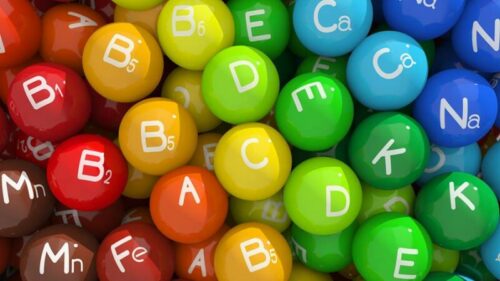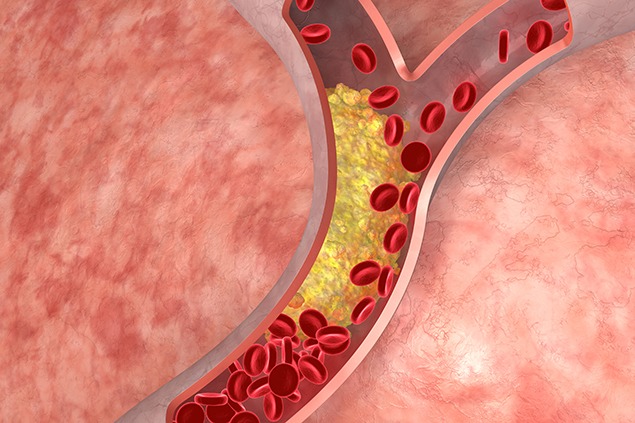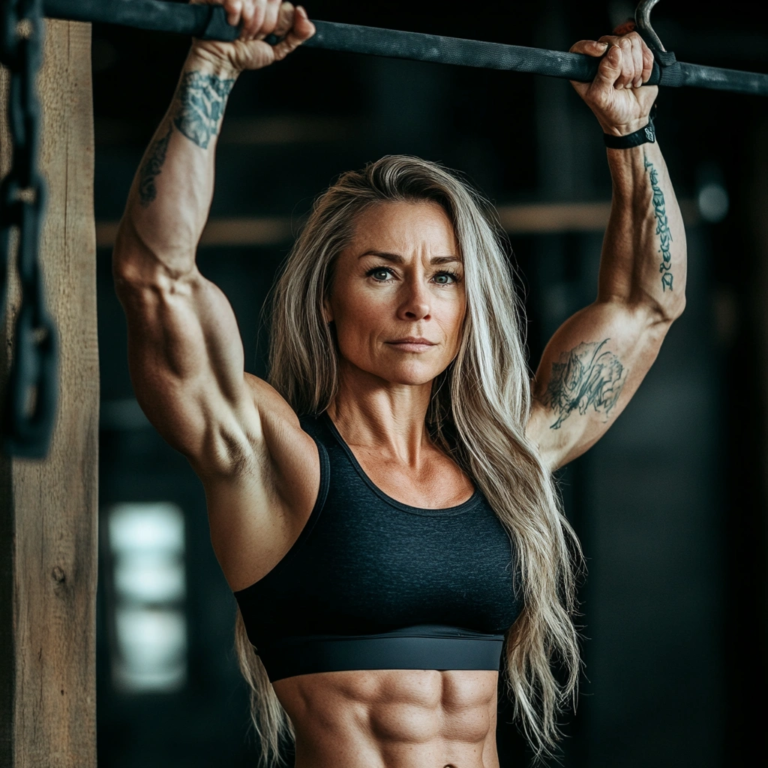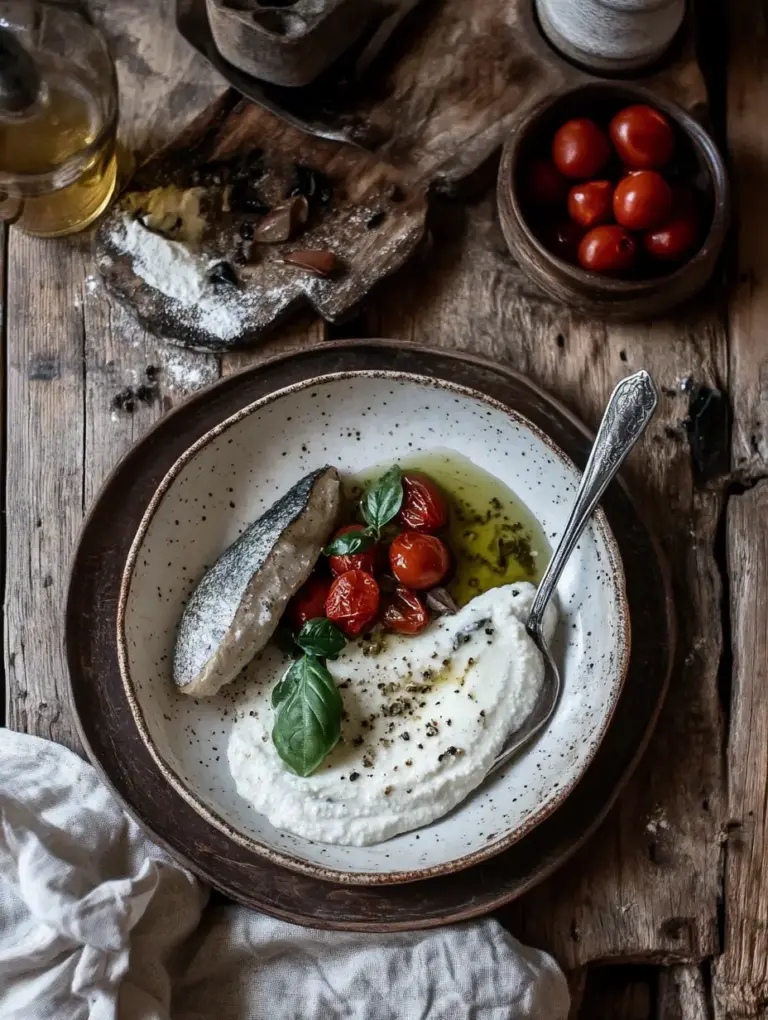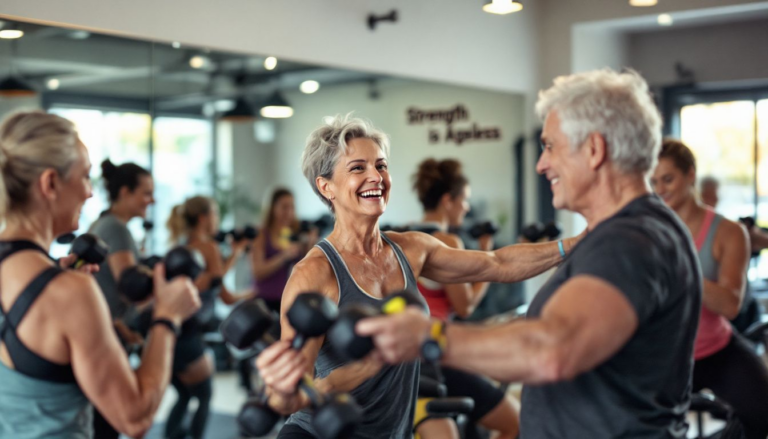The Importance of Vitamins – A Closer Look for Athletes and Bodybuilders
Let’s dive into the fascinating world of vitamins, especially as…
Let’s dive into the fascinating world of vitamins, especially as they relate to us fitness enthusiasts and bodybuilders. Because let’s be honest, when we’re thinking about smashing personal bests, sculpting our physiques, and feeling on top of our game, we’re usually laser-focused on protein, maybe carbs, and if we’re really switched on, healthy fats. But often, those tiny, yet mighty, vitamins can get a bit lost in the mix.
And that’s a real oversight, because if you’re serious about pushing your body to its limits, whether you’re an athlete chasing peak performance or a bodybuilder aiming for that sculpted physique, vitamins are non-negotiable. Think of them as the unsung heroes working tirelessly behind the scenes, making sure everything runs smoothly, efficiently, and optimally. They might not be the headline act, but they are the essential supporting cast that makes the whole show possible.
You can eat all the protein in the world, carb-load like a champion, and follow the most gruelling training regime imaginable, but if you’re skimping on your vitamins, you’re essentially trying to build a high-performance engine with low-grade fuel. It’s just not going to run at its best, and you’re not going to reach your full potential.
So, let’s shine a spotlight on these often-overlooked nutritional powerhouses. In this guide, we’re going to take a deep dive into the 13 essential vitamins – yes, just 13! Sounds manageable, right? We’ll explore what they are, what they do (especially for active bodies like ours), and why they are so utterly crucial for athletes and bodybuilders who demand more from their bodies than the average person. We’ll also tackle the question of whether we need more vitamins if we’re training hard, and how to make sure we’re getting enough of these vital micronutrients without going overboard. No jargon, no complicated science-speak, just clear, practical information you can use to fuel your fitness journey from the inside out. Ready to unlock the vitamin secrets to peak performance? Let’s get started!
Vitamins: The Tiny Titans of Health and Performance – Understanding the Basics
Before we get into the nitty-gritty of each vitamin, let’s quickly brush up on the fundamentals. What exactly are vitamins anyway? Well, in a nutshell, vitamins are organic compounds that are essential for numerous bodily functions. Think of them as tiny keys that unlock countless processes within your cells, keeping everything ticking over as it should. Our bodies can’t produce most vitamins on their own (Vitamin D is a bit of an exception, as we’ll see), so we need to get them from our diet. That’s why they’re called essential – because we must have them to survive and thrive.
There are 13 vitamins that are officially classified as essential for humans: Vitamin A, Vitamin C, Vitamin D, Vitamin E, Vitamin K, and the eight B vitamins, which are Thiamine (B1), Riboflavin (B2), Niacin (B3), Pantothenic Acid (B5), Pyridoxine (B6), Biotin (B7), Folate (B9), and Cobalamin (B12).
Now, vitamins are broadly categorized into two groups based on how they dissolve in the body: fat-soluble and water-soluble. This distinction is important because it affects how your body absorbs, stores, and uses these vitamins.
Fat-Soluble Vitamins (A, D, E, K): These vitamins, as the name suggests, dissolve in fat. When you consume fat-soluble vitamins, they are absorbed along with fats in your diet and then stored in your body’s fatty tissues and liver. Think of your fat tissues as a vitamin “storage depot” for these guys. Because they can be stored, you don’t necessarily need to consume fat-soluble vitamins every single day, as your body can draw upon its reserves. However, it also means that excessive intake of fat-soluble vitamins can potentially lead to toxicity over time, as they can accumulate in your body. It’s generally harder to become deficient in fat-soluble vitamins compared to water-soluble ones, but it’s still possible, especially if your diet is very low in fat or if you have certain digestive issues that affect fat absorption.
Water-Soluble Vitamins (B Vitamins and Vitamin C): These vitamins dissolve in water. Unlike fat-soluble vitamins, water-soluble vitamins are not stored in the body to a significant extent. Any excess water-soluble vitamins are typically excreted in urine. Think of them as “use them or lose them” vitamins. This means you need to replenish water-soluble vitamins regularly through your diet, ideally every day, to maintain adequate levels. Because they are readily excreted, it’s generally less likely to experience toxicity from excessive intake of water-soluble vitamins compared to fat-soluble ones. However, deficiencies in water-soluble vitamins can develop relatively quickly if your dietary intake is insufficient, especially if you have increased needs due to factors like intense physical activity.
Understanding this basic difference between fat-soluble and water-soluble vitamins is key to appreciating how they function in your body and how to ensure you’re getting enough of each without overdoing it. Now, let’s get into the specifics of each vitamin and why they’re so vital for athletes and bodybuilders.
Vitamin Powerhouse: Essential Vitamins and Their Muscle-Boosting Magic for Athletes and Bodybuilders
Alright, let’s get down to the exciting part – how these vitamins directly impact your fitness journey! For athletes and bodybuilders, vitamins aren’t just about general health; they are crucial for optimizing performance, accelerating recovery, supporting muscle growth, and maintaining overall resilience in the face of intense physical demands. Let’s explore each vitamin category and its specific benefits for active individuals like us:
The B Vitamin Brigade: Energy, Muscle, and Red Blood Cell Superstars (B1, B2, B3, B5, B6, B7, B9, B12)
The B vitamins are a team, a powerhouse group working synergistically to support numerous vital functions, particularly crucial for athletes and bodybuilders:
Energy Production (B1, B2, B3, B5, B7): B vitamins are essential for converting the food you eat – carbohydrates, fats, and proteins – into usable energy that fuels your workouts, your daily activities, and everything in between. They act as coenzymes in metabolic pathways, facilitating the breakdown of macronutrients and the release of energy. Think of them as the ignition keys in your body’s energy-generating machinery. Without sufficient B vitamins, your energy levels will plummet, workouts will suffer, and you’ll feel sluggish and fatigued.
Thiamine (B1): Crucial for carbohydrate metabolism – think of it as the “carb energy vitamin.”
Riboflavin (B2): Important for fat and protein metabolism, as well as antioxidant function.
Niacin (B3): Plays a key role in energy production from all macronutrients.
Pantothenic Acid (B5): Essential for the formation of coenzyme A, vital for energy release from food.
Biotin (B7): Involved in carbohydrate, fat, and protein metabolism.
Muscle Building and Repair (B6, B9, B12): While protein is the primary building block for muscle, B vitamins play crucial supporting roles in muscle growth, repair, and maintenance.
Pyridoxine (B6): Essential for protein metabolism – helps your body break down and utilize protein for muscle repair and growth. Also involved in glycogen metabolism (carbohydrate storage in muscles).
Folate (B9): Important for cell growth and division, which is crucial for muscle tissue repair and hypertrophy (growth).
Cobalamin (B12): Vital for red blood cell formation, nerve function, and DNA synthesis – all important for muscle function and overall health.
Red Blood Cell Production (B9, B12): Vitamins B9 (Folate) and B12 (Cobalamin) are indispensable for the formation of healthy red blood cells. Red blood cells are responsible for carrying oxygen throughout your body, including to your muscles. Adequate red blood cell production is crucial for oxygen delivery to working muscles during exercise, enhancing endurance and performance. Deficiency in B9 or B12 can lead to anaemia, characterized by fatigue, weakness, and impaired exercise capacity.
Why B Vitamins are Extra Important for Athletes and Bodybuilders: Due to their increased metabolic demands and higher energy expenditure, athletes and bodybuilders often have increased requirements for B vitamins compared to sedentary individuals. Strenuous exercise increases the turnover and utilization of B vitamins involved in energy production and tissue repair. Furthermore, athletes on calorie-restricted diets, often for weight management or competition preparation, may be at risk of B vitamin deficiencies if they aren’t carefully planning their nutrient intake.
Food Sources of B Vitamins: B vitamins are widely distributed in a variety of foods. Excellent sources include:
* Whole Grains: Brown rice, oats, quinoa, whole wheat bread.
* Meat, Poultry, Fish: Beef, chicken, turkey, salmon, tuna.
* Eggs: A fantastic source of many B vitamins.
* Dairy Products: Milk, yogurt, cheese.
* Legumes: Beans, lentils, chickpeas.
* Leafy Green Vegetables: Spinach, kale, collard greens.
* Nuts and Seeds: Almonds, walnuts, sunflower seeds.
Vitamin D: The Sunshine Vitamin for Bones, Muscles, and Immunity
Vitamin D, often dubbed the “sunshine vitamin,” is unique because your body can synthesize it when your skin is exposed to sunlight. However, Vitamin D is also an essential vitamin that plays a critical role in several aspects of health and fitness:
Bone Health and Calcium Absorption: Vitamin D is vital for calcium absorption in the gut. Calcium is crucial for strong bones, and Vitamin D ensures your body can effectively utilize dietary calcium to maintain bone density and prevent osteoporosis, especially important as we age and engage in weight-bearing exercise.
Muscle Function and Strength: Vitamin D receptors are present in muscle tissue, and Vitamin D plays a role in muscle function, strength, and power. Adequate Vitamin D levels are associated with improved muscle strength and reduced risk of falls, particularly in older adults. Deficiency can contribute to muscle weakness and fatigue.
Immune Function: Vitamin D is a key player in immune system regulation, helping to modulate immune responses and reduce inflammation. Maintaining optimal Vitamin D levels is important for a robust immune system, especially for athletes who may experience immune system stress due to intense training.
Why Vitamin D is Extra Important for Athletes and Bodybuilders: Athletes, especially those in indoor sports or who train during winter months or in regions with limited sunlight, are at increased risk of Vitamin D deficiency. Even outdoor athletes may not get sufficient sun exposure due to sunscreen use or clothing covering. Adequate Vitamin D is crucial for bone health to withstand the stresses of training, for muscle function and strength gains, and for a strong immune system to prevent illness and maintain training consistency.
Food Sources of Vitamin D: Relatively few foods are naturally rich in Vitamin D. Good sources include:
* Fatty Fish: Salmon, tuna, mackerel.
* Egg Yolks: Contain some Vitamin D.
* Fortified Foods: Milk, cereals, orange juice are often fortified with Vitamin D.
* Cod Liver Oil: A concentrated source of Vitamin D (and Vitamin A).
Vitamin C: The Antioxidant and Collagen Champion for Recovery and Immunity
Vitamin C, also known as ascorbic acid, is a potent water-soluble vitamin with a wide range of functions, particularly beneficial for athletes and bodybuilders:
Antioxidant Powerhouse: Vitamin C is a powerful antioxidant, protecting your cells from damage caused by free radicals. Intense exercise generates increased free radical production, leading to oxidative stress. Vitamin C helps neutralize these free radicals, reducing muscle damage, inflammation, and promoting faster recovery after workouts.
Collagen Synthesis and Tissue Repair: Vitamin C is essential for collagen synthesis, a protein that is crucial for the structure and integrity of connective tissues like tendons, ligaments, cartilage, and skin. Adequate Vitamin C intake supports tissue repair and wound healing, helping to prevent injuries and promote recovery from training-induced micro-tears in muscle tissue.
Immune System Support: Vitamin C is a well-known immune booster, supporting various aspects of immune function. It helps to strengthen the immune system, reduce the duration and severity of colds, and protect against infections, crucial for maintaining training consistency and overall health.
Iron Absorption Enhancement: Vitamin C enhances the absorption of non-heme iron (the type of iron found in plant-based foods) in the gut. Iron is essential for oxygen transport and energy production. Combining Vitamin C-rich foods with iron-rich plant sources can improve iron status, particularly important for vegetarian and vegan athletes.
Why Vitamin C is Extra Important for Athletes and Bodybuilders: Rigorous training increases oxidative stress and can temporarily suppress immune function. Athletes and bodybuilders benefit greatly from Vitamin C’s antioxidant and immune-boosting properties to accelerate recovery, reduce muscle soreness, support tissue repair, and maintain a strong immune system to minimize training interruptions due to illness.
Food Sources of Vitamin C: Vitamin C is abundant in many fruits and vegetables. Excellent sources include:
* Citrus Fruits: Oranges, lemons, grapefruits, limes.
* Berries: Strawberries, blueberries, raspberries, blackcurrants.
* Bell Peppers: Especially red and yellow bell peppers.
* Broccoli and Brussels Sprouts: Cruciferous vegetables are good sources.
* Kiwi Fruit: A surprisingly rich source of Vitamin C.
* Tomatoes: Another good source.
Vitamin E: The Cell Protector and Antioxidant Ally
Vitamin E is a fat-soluble vitamin that primarily functions as a powerful antioxidant, protecting cells from damage:
Antioxidant Protection: Vitamin E is a major antioxidant in the body, particularly effective at protecting cell membranes from damage caused by free radicals. Like Vitamin C, Vitamin E helps to reduce oxidative stress induced by intense exercise, supporting muscle recovery and overall cellular health.
Immune Function: Vitamin E also plays a role in immune system function, contributing to immune cell activity and reducing inflammation.
Why Vitamin E is Extra Important for Athletes and Bodybuilders: Intense exercise increases oxidative stress, and Vitamin E’s antioxidant properties help to mitigate cellular damage, support muscle recovery, and potentially boost immune function in athletes engaged in strenuous training.
Food Sources of Vitamin E: Vitamin E is found in various plant-based foods, particularly fats and oils. Good sources include:
* Nuts and Seeds: Almonds, sunflower seeds, hazelnuts.
* Vegetable Oils: Wheat germ oil, sunflower oil, almond oil.
* Leafy Green Vegetables: Spinach, kale.
* Avocado: Contains some Vitamin E.
Vitamin A: The Vision, Immune, and Cell Growth Guardian
Vitamin A is a fat-soluble vitamin essential for a wide range of functions, including:
Vision: Vitamin A is crucial for vision, particularly night vision. It’s a component of rhodopsin, a light-sensitive pigment in the retina.
Immune Function: Vitamin A plays a vital role in immune system function, supporting the integrity of mucous membranes (linings of the respiratory, digestive, and urinary tracts), which act as barriers against pathogens.
Cell Growth and Differentiation: Vitamin A is essential for cell growth and differentiation, including the growth and development of epithelial tissues (skin, linings of organs). This is important for maintaining the health of tissues that may be stressed during intense training.
Why Vitamin A Might Be More Important for Athletes and Bodybuilders (Indirectly): While Vitamin A doesn’t directly enhance muscle growth or performance in the same way as some other vitamins, its role in immune function and maintaining tissue health is important for athletes. A strong immune system helps prevent illness and maintain training consistency, while healthy epithelial tissues can withstand the stresses of physical activity. However, excessive Vitamin A intake can be toxic, so supplementation should be approached with caution and under professional guidance. Generally, obtaining Vitamin A from food sources is safer and sufficient.
Food Sources of Vitamin A: Vitamin A is found in both animal and plant-based foods. There are two forms: preformed Vitamin A (retinol), found in animal products, and provitamin A carotenoids (like beta-carotene), found in plant foods, which your body can convert to Vitamin A. Good sources include:
* Animal Sources (Retinol): Liver, dairy products, eggs.
* Plant Sources (Beta-Carotene): Sweet potatoes, carrots, spinach, kale, pumpkin, cantaloupe.
A Word of Caution: Dosage and the “More Isn’t Always Better” Principle
While athletes and bodybuilders often have increased vitamin needs compared to sedentary individuals, it’s crucial to remember that more is not always better when it comes to vitamins. Exceeding the recommended upper limits for certain vitamins, particularly fat-soluble vitamins, can lead to adverse effects and even toxicity.
Vitamin D Toxicity: Excessive Vitamin D intake, typically from high-dose supplements, can lead to hypercalcemia (excessively high blood calcium levels), causing symptoms like nausea, vomiting, weakness, and kidney problems.
Vitamin A Toxicity: Excessive preformed Vitamin A (retinol) intake can also be toxic, leading to symptoms like nausea, headache, dizziness, liver damage, and even birth defects in pregnant women.
Vitamin B6 Toxicity: While water-soluble vitamins are generally less toxic, very high doses of Vitamin B6 (pyridoxine) from supplements can cause nerve damage (neuropathy), leading to numbness and tingling in the extremities.
The Takeaway Message: Food First, Supplement Wisely (If Needed), and Consult Professionals
The best approach to meeting your vitamin needs, even as an athlete or bodybuilder, is to prioritize a well-rounded, nutrient-dense diet rich in a variety of fruits, vegetables, whole grains, lean proteins, and healthy fats. A balanced diet should provide the majority, if not all, of the vitamins you need for optimal health and performance.
Supplementation may be considered in certain specific situations, such as:
Diagnosed Vitamin Deficiency: If a blood test reveals a vitamin deficiency, supplementation may be necessary under the guidance of a healthcare professional.
Specific Dietary Restrictions: Vegans, vegetarians, or individuals with certain food allergies or intolerances may be at risk of deficiencies in certain vitamins (e.g., Vitamin B12 for vegans, iron for vegetarians) and may benefit from targeted supplementation.
Limited Sun Exposure (Vitamin D): Individuals with limited sun exposure, especially during winter months or in certain geographical locations, may consider Vitamin D supplementation, particularly after consulting with a doctor and getting their Vitamin D levels checked.
High-Intensity Training (Vitamin C and E – Potentially, but Food First): * Some athletes in very demanding training regimes may consider slightly higher intakes of antioxidant vitamins like C and E to support recovery, but this should ideally be achieved through increased consumption of whole foods rich in these vitamins, rather than relying solely on supplements. Supplementation in this area is more debatable and should be approached cautiously.
Crucially, always consult with a healthcare provider or a registered dietitian before starting any vitamin supplementation regimen. They can assess your individual needs, dietary intake, training intensity, and health status to determine if supplementation is necessary and recommend appropriate dosages and forms of vitamins. Self-supplementation, especially with high doses, can be risky and may not provide the intended benefits.
Vitamins: Essential Allies, Not Magic Bullets
In conclusion, vitamins are undeniably essential allies in your pursuit of fitness and bodybuilding excellence. They are vital for energy production, muscle function, recovery, immune health, and countless other bodily processes that are crucial for peak performance. However, vitamins are not magic bullets. They are one piece of the puzzle, and they work best when combined with a holistic approach that includes a balanced diet, adequate hydration, consistent training, sufficient rest and recovery, and overall healthy lifestyle habits.
Focus on building a solid nutritional foundation with whole, unprocessed foods, prioritize variety, and ensure you’re consuming a colourful array of fruits and vegetables to naturally load up on those vitamin powerhouses. Supplement wisely and only, when necessary, always under professional guidance. With a smart and informed approach to vitamins, you’ll be well on your way to unlocking your full fitness potential and achieving your bodybuilding goals!
Disclaimer: This blog post is crafted for informational purposes and isn’t an endorsement of any supplements. Consultation with professionals is vital when making health or athletic decisions.

